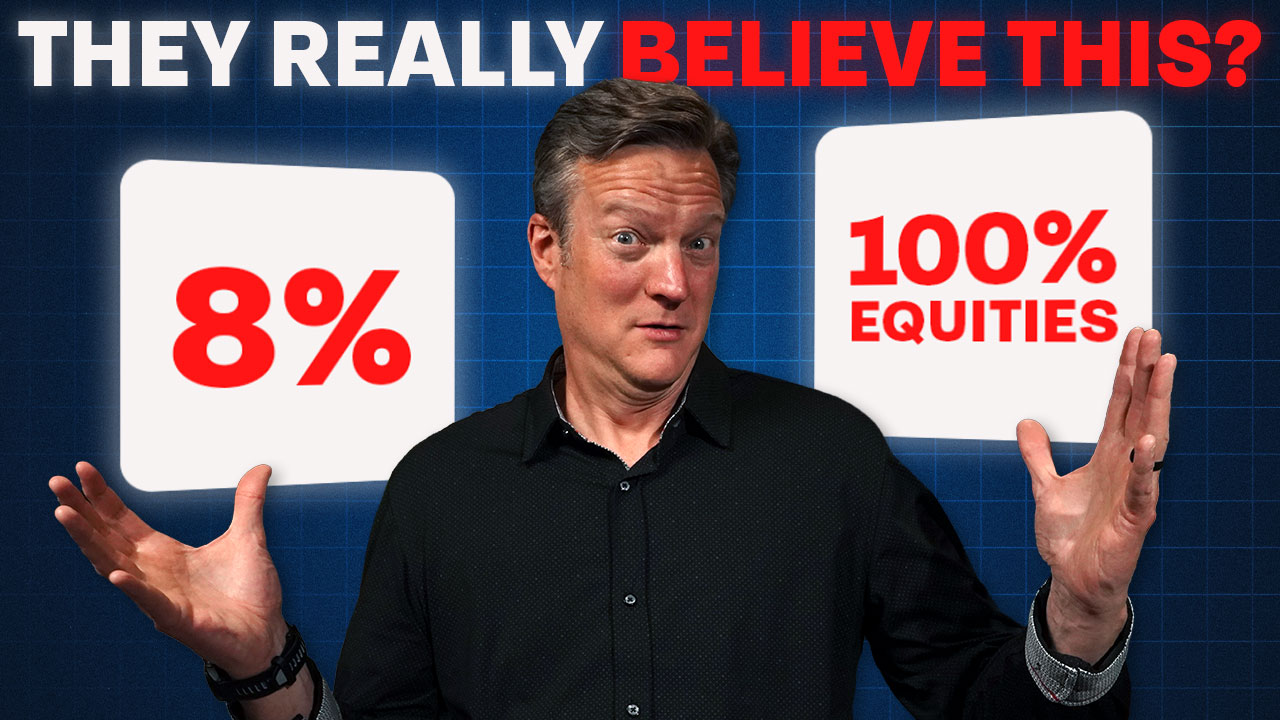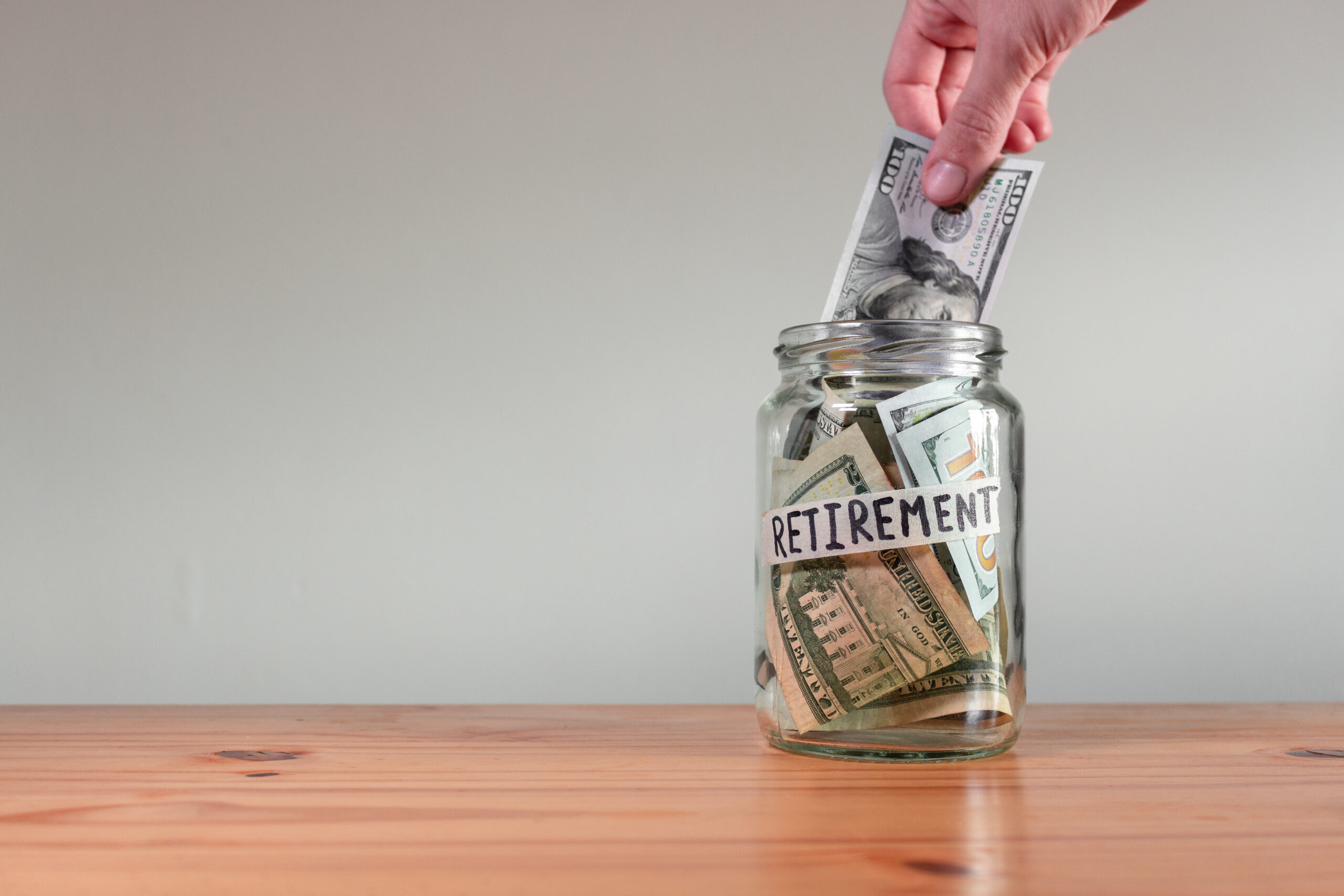Joanne has a question for you guys, she says: "Suggestions please on ways retirement-age folks can ensure we're ready for retirement. What do we look for in a financial planner? Do we need one? How do you feel about self-directed?" Thanks in advance.
Alright, so it sounds to me like Joanne asked two questions. Ways retirement folks can make sure they're ready now, and then number two, is how do I find a financial advisor, or what are ways to know what a good financial advisor is? I'll talk about some ways that you can know you're ready and some things that kind of shift as you're moving towards retirement before you actually tell your boss, "Hey, I'm out, now I'm putting in my notice and I'm actually moving into this."
The first is, have you checked the retirement boxes that you normally have to check when you're working through this? Meaning, like when you're in your accumulation phase, when you're building up your wealth, we always tell you that we want you to keep an emergency fund in place of somewhere between three to six months of living expenses. But when you get to retirement or as you're nearing retirement, we want it to be a little bit bigger. We want you to have somewhere between 12 to 18 months of living expenses. So that way, no matter what the markets are doing, if you come through a 2022, or maybe you retire in January of 2022, you're not freaking out because your portfolio is losing value. Because you know you have enough liquid cash that can carry you for that 12 to 18 months without you having to sell securities at a loss, without you having to sell in the downturn. So, that's number one. Have I done the things like adjusting my emergency reserves?
Number two, if I answered the questions of things like health insurance, if I'm retiring at 65, okay, great. I know that there's a solution for folks that are 65 in place. But what if I'm retiring at 50, or 55, or 60? How am I gonna provide maybe the benefits that an employer was previously providing that are no longer there? What are the solutions that I'm going to have in place there?
And then, the third thing that I would say, in addition to those two, is have you stress-tested your plan? Have you said, "Okay, I want to look at this plan from all angles. I want to take the 3D view of my plan, and what does retirement look like under the dream scenario? What does it look like under the down-to-earth scenario? And then, what does it look like in the doodoo scenario? Have I tested to see no matter what the world, or the economy, or the markets, or the environment throw at me, I know that I have a solid retirement plan in place?" Those are three things I'd be thinking about as I move towards retirement.
But then, your next question was, and this is where she kind of went, "Well, what if I want someone to help me? How do I navigate that? How do I choose someone to help me navigate through that?" By the way, Julian, the first thing: go to moneyguy.com resources. We actually have a great deliverable with a lot of the questions you should be asking yourself, often things you should do to prepare for retirement. Go check out our
Money Guy Guide to Retirement resource.
The behavioral is you've got to know what you're retiring to. That's kind of where you were alluding to and talking about making sure you're doing that well. We've done quite a few shows. I mean, we even had authors on who talked about how to have a happy retirement and so forth, and we had Q&As on that. And that really broke it down. On the financial blind spots, you just don't know where your blind spots are. We've helped hundreds of people into retirement. You've got one retirement, so you just have to make sure you know how to navigate how you handle Social Security, Medicare, Roth conversions, estate planning. There's all kinds of the whole risk analysis of even, 'Can you retire?' I mean, those are big things. Then the last thing I put on here was just spiritual. You know, we just did a show on time, and I think a lot of people are shocked to see, as you get older, how much you drop off from your co-workers, how much you drop off from your children, and there's a lot more alone time than any other time of your life. So, I worry about people emotionally thinking, 'Am I still connected?' So, that's why when I say 'spirit,' I'm talking about make sure that you have your community, your relationships all firmed up. That whole thing that gives you purpose in the morning because the more research that goes into happiness and fulfillment is that when you wake up in the morning, do you feel like you're doing your part to be a part of something bigger to make the world a better place, or you have purpose? And I feel like if you're not deliberate with that part, you might find that it's not what you thought it was going to be. So, make sure you're not skipping any steps in that process, Joanna. And so, can you navigate this alone? Can you go at it alone? Absolutely, certainly there are resources out there, and there are ways to do that. But what a good financial advisor should be able to do is lean into all those different areas that Brian mentioned, not just the hard numbers and the Monte Carlo simulation and the tax optimization and the Social Security filing strategies and all those sorts of things, but they should also be able to speak to the behavioral side and help you figure out, okay, here's what I've seen other retirees do or here's where I've seen there be some pitfalls, here's where I've seen there be some problems. So, if you're someone who's in that stage, you're in that place, you're thinking about retirement, we'd love for you to take the relationship to the next level. You can go to
aboundwealth.com, check out the
'work with us' page. We would love to have that conversation with you.














